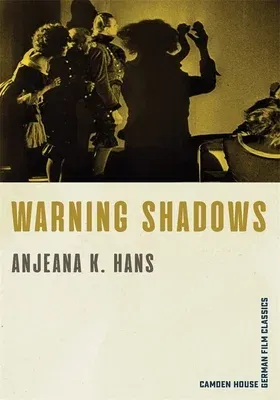A view of a long-neglected classic of Weimar cinema - now restored and
widely available - as both a gripping narrative of infidelity and
jealousy and a film inherently about film.
Artur Robison's Warning Shadows - in German simply Schatten, shadows -
premiered in 1923 to critical acclaim. This story of a fateful dinner
party at which a flirtatious wife, her jealous husband, and their guests
are entertained by a traveling illusionist who deals in shadow play and
hypnosis was extolled by one critic as superior to Wegener's Golem,
Lubitsch's Passion, even Murnau's Nosferatu and Wiene's The Cabinet of
Dr. Caligari. Yet where those films became mainstays of film history,
Warning Shadows was long unknown: only recently, with the release of a
restored version on DVD, has it begun to get its due. One of the few
silent movies to eschew intertitles, it was an attempt to create a "pure
film," drawing on the qualities of cinema that made it not an heir to
literature or theater but a unique and autonomous art form. Staging a
story of desire, adultery, and violence, Robison's film also engaged
with discourses at the heart of Weimar culture, from changing gender
norms to hysteria and hypnosis to the construction of spectatorship.
Seen this way, Warning Shadows is both a gripping narrative of
infidelity and jealousy and a film inherently about film.

